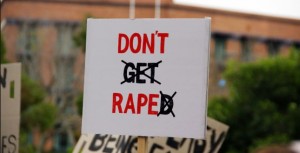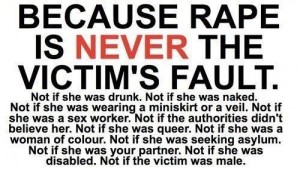Challenges Grassroots Efforts Face
The work of grassroots organizations like SAFER, Know Your IX, and Girls for Gender Equity have promoted awareness of issues pertaining to sexual violence on urban college campuses and moved to the forefront acts and bills, such as the clery act and ed act now, that fight to protect students from sexual violence.12 However, their efforts are not without incredible limitations and obstacles.
Grassroots movements fighting sexual assault are usually started and run by survivors of assault. Thus, the obstacles the movement faces are similar to those victims of sexual assault seeking justice experience. While the limitations are numerous, I find the most restricting to be school retaliations, misrepresentation in the media, and activist burn out and self care.13 
Schools often fear anything that might damage their reputations. When reports of sexual assault surface on a campus, often, a school’s first instinct is to deal with it
privately and quietly. This is not always in a student’s interest. Retaliation is defined as when a school, in any way, discriminates against a student who has a concern about sexual assault or has reported a possible violation.14 Schools’ failure to comply with Title IX both stunt the progress of grassroots organizations such as chapters of Know Your IX and incite further activism.
 Media is a strong determinant of how a movement is portrayed in the public’s eyes. A movement popular with the public gains steam and support. Reporters often take activists words out of context and cause a movement to be misrepresented. With an issue as sensitive as sexual assault, this is a dangerous phenomenon. Misrepresentation in media causes the sexual assault movement to be portrayed as a women’s only issue and can encourage victim-blaming practices.15
Media is a strong determinant of how a movement is portrayed in the public’s eyes. A movement popular with the public gains steam and support. Reporters often take activists words out of context and cause a movement to be misrepresented. With an issue as sensitive as sexual assault, this is a dangerous phenomenon. Misrepresentation in media causes the sexual assault movement to be portrayed as a women’s only issue and can encourage victim-blaming practices.15
Finally, because many of the activists are survivors of assault, activist burn out and self care is a serious issue that the movement faces. Survivor-activists deal with the process of healing from their own personal trauma while attempting to organize campus groups and campaigns. Thus, many activists need time or a break from the cause to prioritize their own self care. It is important that activists recognize that fighting sexual assault can be a form of self care.16 Furthermore, creating a supportive community for victims is important in protecting movements from burning out.
Images were taken from:
(in order of appearance)
http://thinkprogress.org/health/2013/03/19/1735451/university-sexual-assault-policy/
http://londonoa.com/2013/03/14/rape-is-never-the-victims-fault-rape-is-a-crime/
